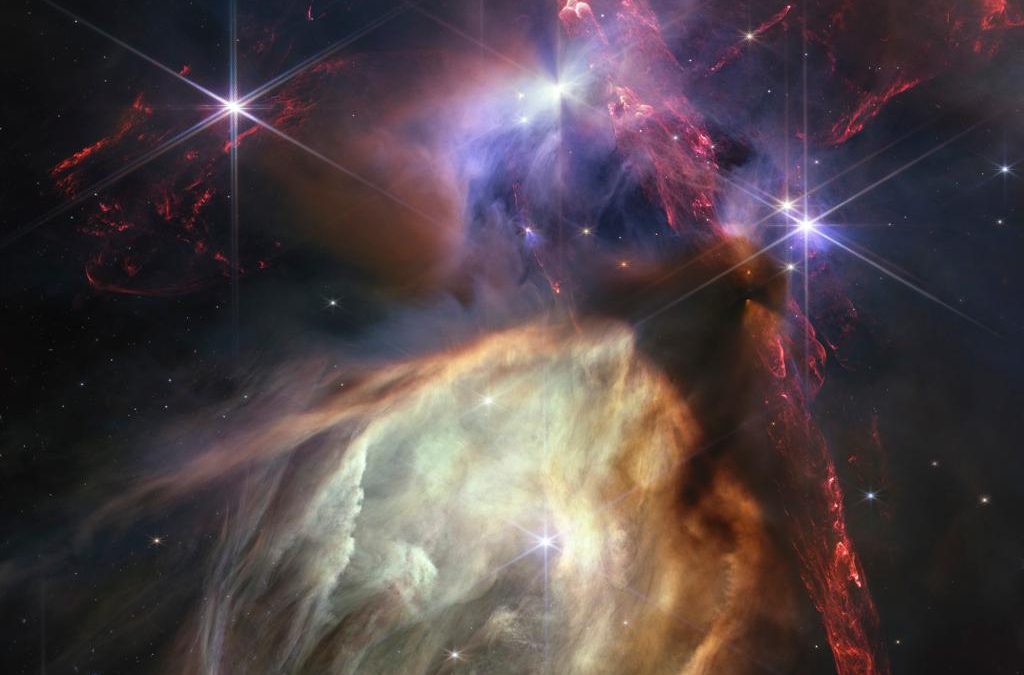It’s the first anniversary of cosmic observations and photographs from the James Webb Space Telescope, and NASA is celebrating by releasing one of its best shots yet.
A new image shows a colorful close-up of a dozen stars at the moment of birth.
“On its first anniversary, the James Webb Space Telescope has already delivered upon its promise to unfold the universe, gifting humanity with a breathtaking treasure trove of images and science that will last for decades,” Nicola Fox, associate administrator of NASA’s Science Mission Directorate in Washington, DC, said in a statement.
“Prepare to be awestruck!” NASA Administrator Bill Nelson tweeted, sharing the anniversary image featuring 50 young stars in a stellar nursery in the Rho Ophiuchi cloud complex — the closest star-forming region to Earth — 390 light-years away.
“We’re unlocking the secrets of the universe, one breathtaking image at a time,” Nelson added.
Since there are no stars in the forefront of the image, the details of the star’s birth stand out more, and some shadows seen could be an indicator of possible future planets, according to NASA.
“The darkest areas are the densest, where thick dust cocoons still-forming protostars,” NASA said.
Scientists said that this snapshot shows the best clarity of the birth phase of a star’s life yet — and all the baby stars appear to be no larger than the Earth’s sun.
“Webb’s image of Rho Ophiuchi allows us to witness a very brief period in the stellar lifecycle with new clarity. Our own sun experienced a phase like this long ago, and now we have the technology to see the beginning of another’s star’s story,” Klaus Pontoppidan, who served as Webb project scientist through the first year of operation, said in the statement.
The $10 billion James Webb Space Telescope is the largest and most powerful astronomical observatory to ever be launched into space and is considered to be the successor to the Hubble Space Telescope.

“Webb has given us a more intricate understanding of galaxies, stars and the atmospheres of planets outside of our solar system than ever before, laying the groundwork for NASA to lead the world in a new era of scientific discovery and the search for habitable worlds,” Fox said.
“In just one year, the James Webb Space Telescope has transformed humanity’s view of the cosmos, peering into dust clouds and seeing light from faraway corners of the universe for the very first time,” Nelson said in the statement. “Every new image is a new discovery, empowering scientists around the globe to ask and answer questions they once could never dream of.”

Source




